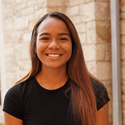Frequently Asked Questions
1. How long is the program?
The BS to DNAP program is 36 months long, beginning and ending in May. This program is a two-phase program, including an initial didactic phase of 14 months followed by a 22 month clinical phase.
The MS to DNAP program is 24 months long and will be delivered primarily through distance education.
2. How many students do you accept each year?
The BS to DNAP program will accept 40 students per year. The MS to DNAP program will accept 5 students each year.
3. How do I apply to the nurse anesthesia program?
To apply to the DNAP program, you will complete the application via NursingCAS. NursingCAS is a service that allows applicants to use a single online application and one set of materials to apply to any participating schools. Follow the instructions on the Admissions page.
4. When is the application deadline?
All application materials must be uploaded to NursingCas before July 1 of the year prior to which admission is being sought.
5. How many applicants do you have each year?
We typically receive between 400-500 applications each year.
6. Does my bachelor’s degree need to be in nursing?
Yes, your bachelor's degree must be in nursing.
7. How many years of RN experience are required for the BS to DNAP program?
At least one (1) year (2 preferred) of recent full-time critical care nursing experience is required prior to entering the BS to DNAP program.
8. Do I need a full year of critical care experience before I submit my application to the BS to DNAP program?
Yes. The one-year experience must be completed by the time you apply to the program. Please note, however, that the program prefers at least 2 years of experience before beginning the program.
9. What do you accept for critical care experience?
Acceptable critical care nursing experience includes: ICU, CCU, SICU, MICU, NICU and PICU. We look for candidates who have developed critical thinking skills while caring for seriously ill patients with multi-system involvement. In addition to possessing independent decision-making skills, candidates should be capable of using and interpreting advanced monitoring techniques, ECG interpretation, ventilator management, and regulating and instituting pharmacological agents based on physiological and pharmacological principles.
10. If I don’t have my course prerequisites or bachelor’s degree completed by July 1, but will before the start of classes, can I apply?
No. All program prerequisites must be completed before application deadline.
11. How many letters of recommendation are required?
Three letters of recommendation are required for admission to the Doctoral program.
Recommendations for the BS to DNAP program must be from:
1) Your current nursing unit director/manager
2) A current nursing unit shift supervisor
3) A current professional nursing colleague
Recommendations for the MS to DNAP program must be from:
1) Immediate supervisor
2) Two colleagues who can attest to your preparation, initiative, and aptitude for successful completion of doctoral education
Recommendations from RNs/CRNAs who have been accepted into, or are currently enrolled in, the nurse anesthesia program will not be considered. Recommendations from family or friends will not be considered.
12. Are there specific forms for use for recommendations?
No. The reference letters should attest to the applicant’s preparation, initiative, and aptitude for successful completion of doctoral education. All references should be in the form of a letter.
13. Who should I speak with regarding the application process?
All questions regarding the Mount Marty University Nurse Anesthesia Program should be directed to the Mount Marty University Nurse Anesthesia Program Office. The program office can be contacted at anesthesia@mountmarty.edu or by telephone at (605) 362-0100.
14. Are all applicants invited for interviews?
No. Admission into our program is very competitive. All complete applications received before the July 1 deadline are reviewed by the admissions committee. The committee thoroughly evaluates all aspects of the application, including overall GPA, basic science GPA, clinical experience, references, resume and personal essay. Interview offers are extended to those applicants the committee feels are most qualified. Incomplete applications, or applications submitted after the July 1, deadline will be reviewed only at the discretion of the Admissions Committee.
15. What can I expect during the interview?
Interview day experiences are a comprehensive, in-person event in Sioux Falls, designed to give you and a support person a holistic view of Mount Marty and our robust program. You will have the unique opportunity to meet and hear directly from program leadership, faculty members, and current student ambassadors. Individual applicant interviews will take place in a panel format during the event. Key highlights include observing current observing current students perform clinical simulations in our program-dedicated lab, receiving information on program logistics, clinical opportunities, and financial responsibilities, providing you the confidence to make the best decision to invest in your future.
16. What if I only have one semester of chemistry for the BS to DNAP program?
We require one semester of college-level chemistry. This chemistry course should have included some elements of inorganic, organic and biochemistry. All required coursework must be completed prior to entering the program.
17. Do I need to have CCRN certification before applying?
CCRN certification is not required for admission, however it is strongly encouraged for the BS to DNAP applicants.
18. Will I be able to work during the BS to DNAP program?
Becoming a nurse anesthetist is very demanding. Students should expect to devote 60-70 hours per week to program requirements. We strongly discourage students from seeking employment during the program. Students are strictly prohibited from working in any capacity that involves the administration of anesthesia.
19. What is the tuition?
Current tuition and fees for the Doctor of Nurse Anesthesia Practice degree available through the Financial Aid Office.
20. Is there a difference between in-state versus out-of-state tuition?
The tuition rates are the same for in-state or out-of-state students.
21. Is financial aid available?
Financial aid is available from the Federal Government in the form of student loans. You can apply for
financial assistance by completing the Free Application for Federal Student Aid online. Contact us on campus at (605) 668-1545 or online for personalized support from our Financial Aid office.
22. If I am accepted for admission to the program, will I be required to make a deposit to hold my position?
Yes. Applicants who are offered a position in the program will be required to make a non-refundable $1,200 deposit to hold their position. The deposit must be received within 7 days of our invitation, or the position is offered to another applicant. The deposit will be credited toward the student’s tuition account at the time of matriculation. All deposits are nonrefundable.
23. Will I have to travel during the BS to DNAP program?
Phase I (didactic phase) consists of 3 months of online coursework and 11 months classroom and hands on learning on the anesthesia campus in Sioux Falls, SD. During Phase I of the program, students spend 2 separate weeks in their primary clinical site. In Phase II, students will finish the remaining 22 months in a clinical setting. Students will also complete 3-5 eight-week specialty rotations to gain experience not offered by their primary site. Most students will be required to travel for their specialty rotations. Travel expenses, room and board, and licensure expenses are the responsibility of the student.
24. Am I required to carry health or malpractice insurance during the program?
We cover students for malpractice insurance. We strongly encourage health insurance for all students. Students are responsible for costs incurred due to needle stick or injury at clinical facilities.
25. Do you accept transfer credits?
Yes, with permission of the program director, up to nine credits can be transferred into the anesthesia program.
26. What are the requirements for admission?
Admission requirements are found on the Admissions page - here. All requirements must be met before starting the program.
For further program information, please contact the program at:
anesthesia@mountmarty.edu
Application materials must be received by July 1 prior to the year seeking admission.
27. How are clinical sites determined?
A survey of primary clinical sites will be sent with an interview invitation to select your top preferences. Once the cohort has been chosen, the Clinical Director utilizes the preference data to determine the clinical location assignments. Students cannot be guaranteed clinical site preferences when assignments are made due to clinical site limitations.







